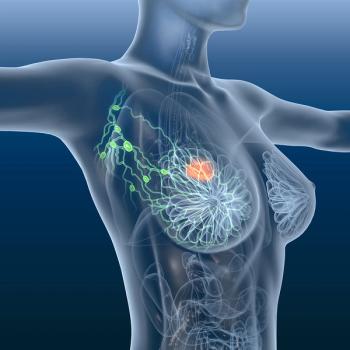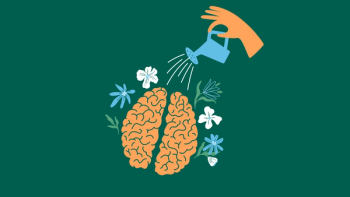
Lillian Rodich, PA-C, MPH, discusses how integrative oncology can give patients practical strategies for managing symptoms, regardless of financial barriers.

Lillian Rodich, PA-C, MPH, discusses how integrative oncology can give patients practical strategies for managing symptoms, regardless of financial barriers.

Danielle Blair, RN, BSN, OCN, CCRP, explains what her role as an adolescent and young adult nurse navigator in oncology entails.

Korie Bigbee, DNP, explains the necessity of survivorship care and how to enact changes to make it more accessible to patients with cancer.

Michelle Kirschner, MSN, RN, ACNP, APRN-BC, discusses precision supportive care and tailored survivorship strategies in an ONN interview.

Michelle Kirschner, MSN, RN, ACNP, APRN-BC, discusses how precision supportive care tailors interventions to patient needs.

Catering supportive care to the individual being treated helps better meet the needs of each patient, says Michelle Kirschner, MSN, RN, ACNP, APRN-BC.

A breast cancer survivorship expert shares her top advice for counseling patients on endocrine therapy at the 5-year mark.

Michelle Kirschner, MSN, RN, ACNP, APRN-BC, explains how educating patients about the Breast Cancer Index can support informed endocrine therapy decisions.

Cancer survivors, particularly men, in physically demanding jobs often face pressure to keep working during treatment, says Cathy Bradley, PhD.

Survivorship expert Michelle Kirschner, MSN, RN, ACNP, APRN-BC, says that “doable changes” can enhance the lives of patients surviving cancer.

Planning for adverse effects early on helps patients prepare for what lies ahead, says Michelle Kirschner, MSN, RN, ACNP, APRN-BC.

The BCI and patient goals help oncology nurses counsel patients on endocrine therapy use after 5 years, per Michelle Kirschner, MSN, RN, ACNP, APRN-BC.

Oncology nurses can help patients and families understand the expectations of pediatric brain cancer survival, says Kasey Rangan, MSN, CPNP-PC, CPHON.

Because oncology nurses are at the forefront of patient care, they are uniquely positioned to facilitate cancer survivorship and lymphedema prevention.

Black and Hispanic pediatric patients with high-risk neuroblastoma had significantly lower 5-year survival rates in induction and/or consolidation trials.



Tara Sweeney, BSN, RN, OCN, CHPN discussed best care for the health and well-being of a person across all stages of their cancer survivorship.

Social determinants of health like transportation and financial increased the occurrence of psychoneurological symptoms in breast cancer survivors.

Experts with the University of Miami Sylvester Comprehensive Cancer Center share their insights.

Proper counseling is needed to help decrease fertility-related psychological distress in adolescent/young adult cancer survivors.

Noël Arring, PhD, DNP, RN, and Debra L. Barton, PhD, RN, FAAN, FASCO, discuss clinical strategies to address sexual dysfunction in female cancer survivors.

Cervical cancer survivors who regularly engage in sex or use vaginal dilators report lower levels of vaginal shortening.

Lynda Balneaves, RN, PhD, provides insights into the new SIO/ASCO guidelines that support mindfulness-based interventions for patients with cancer.

Stronger interventions are needed to improve adjuvant treatment rates among breast cancer survivors.

Effective interventions exist for cancer-related sexual dysfunction, but higher-quality research is still needed to optimize management.

An initiative in Florida will monitor cancer recurrence at a state-level, setting the bar for recurrence data collection and research.

Mary Katherine Montes de Oca, MD, discusses the potential benefit of cryocompression therapy in preventing peripheral neuropathy in patients with gynecologic cancers who are receiving chemotherapy.

A study in the Oncology Nursing Forum highlights which factors are associated with positive psychology and symptom burden in colorectal cancer survivors.

Heather Jackson, PhD, FNP-BC, NEA-BC, FAANP, provides a case-based perspective on the benefit of auricular acupuncture as a tool for managing cancer pain.